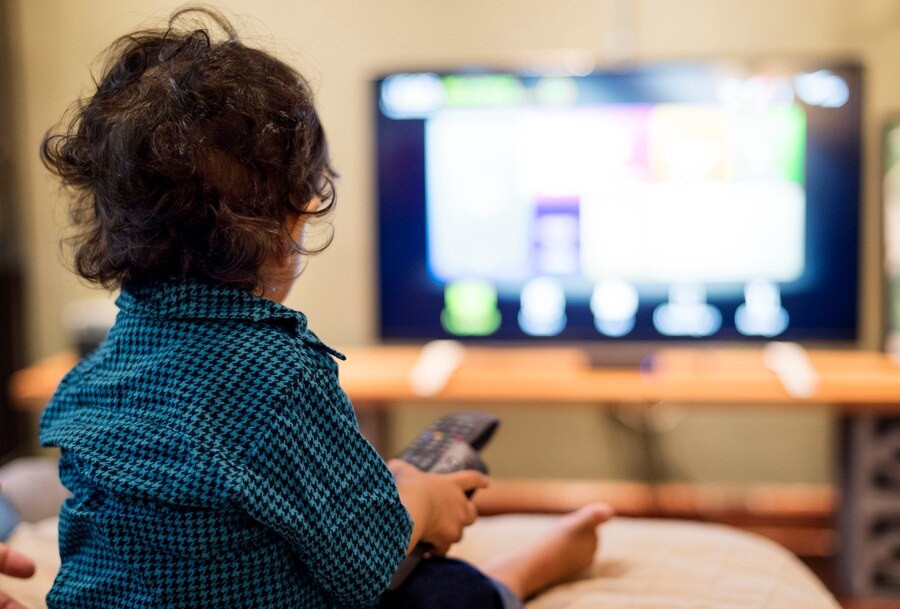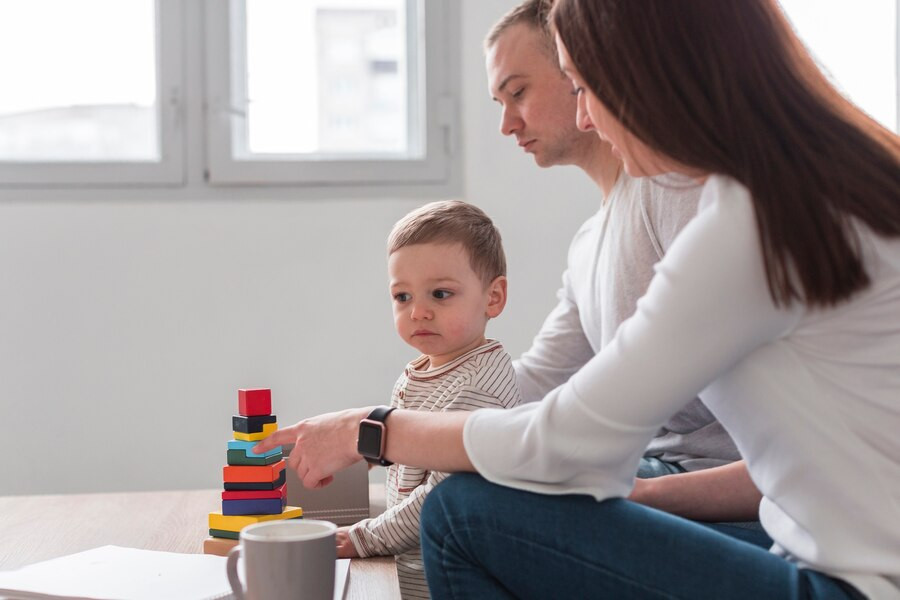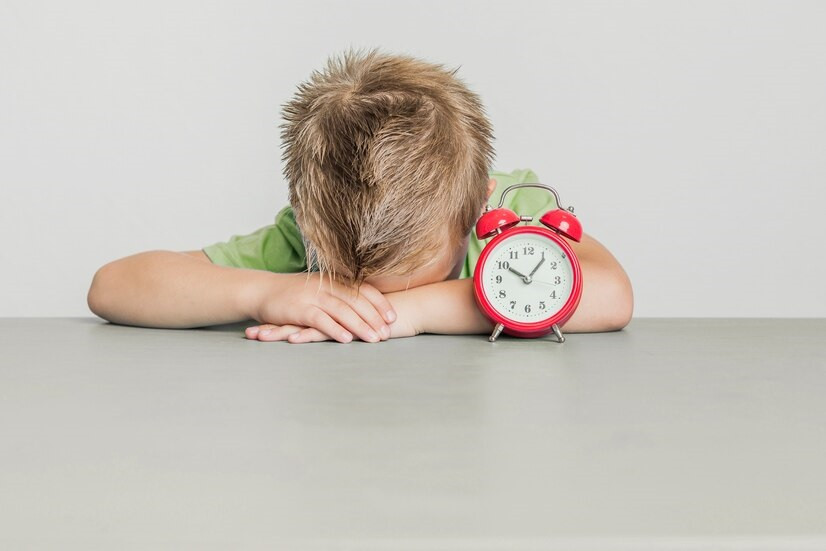Televisi dan ponsel saat ini ibarat menjadi "makanan sehari-hari" bagi anak-anak, karena telah menjadi bagian dari kehidupan sehari-hari. Keduanya begitu mudah diakses karena perubahan teknologi di era modern ini.
Ponsel tak lagi menjadi barang mahal yang hanya dimiliki orang dewasa. Sebagian besar anak-anak memiliki ponselnya sendiri baik untuk berkomunikasi dengan orang tua, teman-teman, maupun sebagai support bagi pendidikan. Meskipun televisi dan ponsel menjadi sesuatu yang tidak bisa ditinggalkan di kehidupan modern ini, Anda tetap perlu membatasi "screen time" anak-anak terhadap televisi dan ponsel. Menonton TV dan menggunakan ponsel berlebihan dapat berdampak negatif bagi kesehatan dan kesejahteraan anak-anak secara keseluruhan.
Dampak Negatif Menonton TV dan Main Ponsel Berlebihan
Menghabiskan lebih banyak waktu menonton TV dan bermain ponsel dapat memberikan dampak negatif bagi anak-anak, di antaranya:
Risiko obesitas
Makin banyak waktu yang dihabiskan anak-anak untuk menonton TV dan bermain HP, makin besar pula risiko mengalami kelebihan berat badan. Hal ini disebabkan oleh kurangnya aktivitas fisik yang diperlukan dan terlalu banyak waktu yang dihabiskan untuk duduk atau berbaring.
Kelebihan berat badan dan obesitas bukan melulu soal kegemukan, melainkan peningkatan risiko masalah kesehatan jangka panjang seperti diabetes, tekanan darah tinggi dan kolesterol tinggi di kemudian hari yang jauh lebih berbahaya.
Kurang tidur
Anak-anak yang menghabiskan terlalu banyak waktu menonton TV dan bermain HP cenderung kurang tidur. Paparan cahaya biru dari alat elektronik dapat memengaruhi produksi melatonin, hormon yang mengatur tidur. Akibatnya, anak-anak cenderung kesulitan tidur atau memiliki tidur yang kurang berkualitas.
Masalah perilaku
Anak sekolah dasar yang menghabiskan lebih dari dua jam sehari menonton TV atau bermain ponsel lebih berisiko mengalami masalah emosional, sosial dan perhatian. Anak-anak mungkin lebih suka kekerasan, kesulitan berinteraksi sosial, kesulitan berkonsentrasi dan fokus pada tugas di sekolah.
Memengaruhi prestasi akademis
Menghabiskan terlalu banyak waktu menonton TV dan main ponsel cenderung memengaruhi prestasi akademis anak-anak. Sangat penting untuk mengawasi penggunaan perangkat elektronik, serta menciptakan lingkungan yang mendukung belajar dan tidur yang baik bagi anak-anak untuk menghindari gangguan yang dapat memengaruhi hasil akademis mereka.
Baca Juga: Risiko Kesehatan Anak dan Bayi yang Sering Terpapar Asap Rokok
Rekomendasi Screen Time Anak-Anak
Dengan risiko dampak negatif di atas, Anda disarankan untuk membatasi anak menonton TV dan main HP. Menurut American Academy of Child and Adolescent Psychiatry, batasan menonton TV bagi anak-anak dibedakan sesuai usia, yaitu:
Di bawah 2 tahun
Menurut WHO, anak-anak di bawah usia 2 tahun tidak direkomendasikan menonton TV atau menonton dari ponsel. Namun, AAC memperbolehkan anak di bawah usia 2 tahun menonton TV dengan pilihan program edukasi tertentu.
Anak usia 2-5 tahun
Anak-anak di usia 2-5 tahun diperbolehkan menonton TV 1 jam di hari biasa, dan 3 jam di akhir minggu atau kurang dari itu.
Baca Juga: Tanda-Tanda Anak Memiliki Kepercayaan Diri Rendah
Anak usia 6 tahun ke atas
Tidak ada batasan waktu tertentu menurut AAC untuk anak usia 6 tahun ke atas. Namun, orang tua perlu mengajak anak untuk lebih aktif secara fisik, bermain di luar ruangan, berolahraga dan mengurangi aktivitas yang bersifat sedentary.
Selain membatasi screen time anak, jangan lupa untuk menjadi role model bagi anak agar mereka juga meniru kebiasaan baik dan sehat Anda. Manfaatkan layanan konsultasi kesehatan dengan dokter kami terkait keluhan atau masalah kesehatan di dalam keluarga Anda melalui aplikasi Ai Care yang bisa diunduh di App Store atau Play Store.
Mau tahu informasi seputar kehamilan, menyusui, kesehatan wanita dan anak-anak? Cek di sini, ya!
- dr. Monica Salim
Jill Christiensen, CNP (2021). Children and screen time: How much is too much?. Available from: https://www.mayoclinichealthsystem.org/hometown-health/speaking-of-health/children-and-screen-time
Mayo Clinic (2022). Screen time and children: How to guide your child. Available from: https://www.mayoclinic.org/healthy-lifestyle/childrens-health/in-depth/screen-time/art-20047952
Catherine Crider and The Healthline Editorial Team (2022). Screen Time for Kids: Guidelines, Boundary Setting, and Educational Recommendations. Available from: https://www.healthline.com/health/parenting/screen-time-for-kids
Mayo Clinic (2022). Childhood obesity. Available from: https://www.mayoclinic.org/diseases-conditions/childhood-obesity/symptoms-causes/syc-20354827
National Institutes of Health (2022). Children’s sleep linked to brain development. Available from: https://www.nih.gov/news-events/nih-research-matters/children-s-sleep-linked-brain-development
Christopher Curley (2019). Only Half of U.S. Children Get Enough Sleep: Why That’s a Serious Problem. Available from: https://www.healthline.com/health-news/children-lack-of-sleep-health-problems











